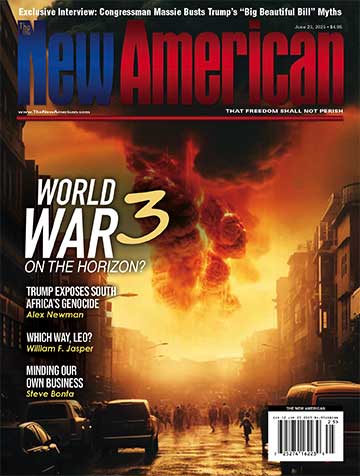
Is “climate change” or “global warming” more useful to policy makers and politicians for scaring the public into supporting vast transfers of power and wealth to the political classes? That is an important question that has divided the climate alarmist lobby for quite some time, and two recent high-powered reports from alarmist camps appear to be at odds with each other over the matter.
In May, the Yale Project on Climate Change Communication issued a report entitled, “What’s In A Name? Global Warming vs Climate Change”, which found that using the term “global warming” is more effective than “climate change” in eliciting alarm and stirring public activism. However, a new Parliamentary report from the United Kingdom’s House of Commons Science and Technology Committee entitled “Communicating Climate Science” — and a response to that report from the UK government — indicates that alarmist saturation and exaggeration using both terms has reached a level that is counterproductive.
“Alarm over climate turns people off,” is the headline for a story on the Parliament inquiry report by Ben Webster, Environment Editor for The Times, one of the UK’s major dispensers of climate alarmism. The Times reported:
Alarmist claims about the impact of global warming are contributing to a loss of trust in climate scientists, an inquiry has found.
Apocalyptic language has been used about greenhouse gas emissions as “a deliberate strategy by some to engage public interest”. However, trying to make people reduce emissions by frightening them has “harmful consequences” because they often respond suspiciously or decide the issue is “too scary to think about”.
“Public interest in climate change has fallen sharply in the past few years,” reported Webster, “according to a survey last month which found the number of Google searches for the phrase ‘global warming’ had fallen by 84 per cent since the peak in 2007.”
The Times’ Webster went on to recount some of the embarrassing scandals that have shattered the credibility of the proponents of anthropogenic (man-made) global warming (AGW):
Confidence in climate science was undermined in 2010 by the revelation that the Intergovernmental Panel on Climate Change, a UN scientific body which advises governments, had falsely claimed that Himalayan glaciers could disappear by 2035. Scientists have also been accused of exaggerating the rate of loss of Arctic sea ice by claiming the North Pole could be ice-free in summer by 2020. Other scientists say this is unlikely before 2050.
Claims were made a decade ago, and later retracted, that the snows of Kilimanjaro, Africa’s highest mountain, could disappear by 2015.
The Parliamentary inquiry, led by Professor Chris Rapley, former director of the Science Museum (and an AGW alarmist), concluded: “Alarmist messages that fail to materialise contribute to the loss of trust in the science community.”
It’s the old case of the boy who cried “Wolf!” too many times, or the Chicken Little who foolishly claimed the sky was falling.
(For additional articles on “Himalayagate,” “Glaciergate,” “Temperaturegate,” “PolarBeargate,” and other AGW scandals that have exposed the climate alarmists to ridicule see here, here, here, and here.)
Webster notes further, in The Times:
It [the Parliamentary report] says the “climate science community” is quick to challenge those who downplay climate change but less willing to question “alarmist misrepresentations” of climate research. Doom-laden reports may make people feel anxious but their concern does not last. “Over time this worry changes to numbness, desensitisation and disengagement from the issue altogether.
“The failure of specific predictions of climate change to materialise creates the impression that the climate science community as a whole resorts to raising false alarms. When apparent failures are not adequately explained, future threats become less believable.”
Yale, White House, MSM Alarmists Press On
President Barack Obama, the heavily-funded AGW alarm lobby, and much of the major media are clearly ignoring the British parliamentary cautions against apocalyptic climate predictions. Indeed, the White House and its climate doomsday choir are doubling down and kicking up the fear mongering several notches on the fright meter. The aforementioned study from the Yale Project on Climate Change Communication (YPCCC) has apparently convinced them to ignore the law of diminishing returns.
“We found that the term ‘global warming’ is associated with greater public understanding, emotional engagement, and support for personal and national action than the term ‘climate change,’” says the YPCCC report, “What’s In A Name? Global Warming vs Climate Change.”
Among other advantages for AGW alarmists, the report points out that “the term ‘global warming’ is associated with”:
• More intense worry about the issue, especially among men, Generation Y (18-30), Generation X, Democrats, liberals and moderates;
• A greater sense of personal threat, especially among women, the Greatest Generation (68+), African-Americans, Hispanics, Democrats, Independents, Republicans, liberals and moderates;
• Higher issue priority ratings for action by the president and Congress, especially among women, Democrats, liberals and moderates;
• Greater willingness to join a campaign to convince elected officials to take action, especially among men, Generation X, liberals and moderates.
“Our findings,” says the YPCCC report, “strongly suggest that the terms global warming and climate change are used differently and mean different things in the minds of many Americans.”
“Activate.” “Urgency.” “Need to respond.”
More to the point, the Yale report notes that the different terms “activate different sets of beliefs, feelings, and behaviors, as well as different degrees of urgency about the need to respond.”
TIME magazine science and environment reporter Bryan Walsh suggested that based on the Yale research, “environmentalists who want to nudge as much of the public as possible towards action” would be wise to use the stronger “global warming” terminology rather than “climate change.”
“The two terms may seem synonymous, but one generates much more engagement than the other,” says Walsh in piece titled, “Why ‘Global Warming’ Is Scarier Than ‘Climate Change.’” He writes:
A quick check of the TIME.com archives reveals that I’ve used the term “global warming” in 545 posts, videos and articles — not counting this one. And the term “climate change”? 852 times. That’s not surprising. While the two terms are largely synonymous — which is why there are 472 posts where I use both —”climate change” has become the preferred term for scientists because it better describes the long-term changes in the planet’s climate, which go well beyond simple temperature increase. Scientists use it, and so have I, but most of the time I simply rotate the two terms for variety’s sake.
Mr. Walsh is less than accurate here (and, we suspect, less than honest). The change from “global warming” to “climate change” did not occur because scientists en masse determined that “it better describes” what is happening on our planet. The terminology change was implemented by activist “scientists” because the scientific evidence was forcing them to admit that their fright-peddling computer models are wrong and there has been no measurable global warming for the past 17 years, since the late 1990s.
Many distinguished scientists have pointed out that the term “climate change” is meaningless because the climate is dynamic; it’s always changing and always has been in a state of flux. Professor Judith Curry, a climatologist and chair of the School of Earth and Atmospheric Sciences at the Georgia Institute of Technology, had this pertinent comment about the YPCCC study:
Well, I am not going to play the propaganda game here; I don’t care which phrase is more effective at mobilizing “action.” What concerns me is accuracy.
Personally, I use AGW (shorthand for anthropogenic global warming); I think it is important to include the “A” when we are talking about that unknown fraction of warming since 1950 that can be attributed to humans. If you leave out the “A”, people are misled into thinking that all warming for the past 1000 years is caused by humans (the “hockey stick” argument).
Dr. Curry is one of many experts who have been branded as “heretics” for breaking ranks with the climate mafia that seeks to stifle scientific inquiry and dissent, and to ride the AGW wagon to greater wealth and power.
“With regards to ‘climate change’, I think this is extremely misleading,” says Dr. Curry. “I guess ‘climate change’ helps you get around the inconvenient truth of the hiatus in global surface temperature increase. And it implies that any change, or weather you don’t like, is caused by humans.”
“But from a scientific perspective, I’m not sure that the phrase ‘climate change’ has any meaning at all,” notes Prof. Curry. “If you are going to talk about ‘climate change,’ you need some reference time scale, and some amplitude of change to consider….”
She notes further:
From a scientific perspective, I suggest that the following be used: “anthropogenic global warming” and “climate variability.” We should retire “climate change” from the public discourse, since it is misleading, and apparently not even “effective.” There is also the unfortunate use of the term “climate change” in all sorts of government programs, not to mention the IPCC.
But for propagandists such as TIME’s Mr. Walsh, the most important consideration is that “language matters in politics” — and so, of course, one should use the language that will best “nudge” the public toward the desired outcome. He writes:
The difference between global warming and climate change isn’t that large yet, but environmentalists who want to nudge as much of the public as possible towards action should be careful which one they use.
President Obama’s advisers apparently are taking no chances; they are covering all bases by having the president copiously use both “climate change” and “global warming” in all of his escalating announcements on the alleged dangers of the AGW threat. The White House’s recent release of the National Climate Assessment is but one of the more prominent of President Obama’s recent speeches and proclamations that border on the hysterical in their dire predictions. In these climate monitories President Obama has also adopted some of the newer terminology that the AGW alarmist lobby has coined to propagate new fears: “extreme weather” and “climate disruption.”
Related articles:
More Proof U.S. Temperature Data Is Manipulated
Intolerance: Global-warming Fanatics Intimidate Swedish Scientist
NASA Data: Global Warming Still on “Pause,” Sea Ice Hit Record
In Bid for More Power, Obama Hypes Alarmist “Climate” Report




